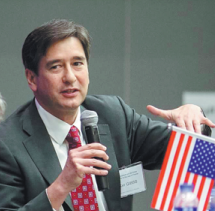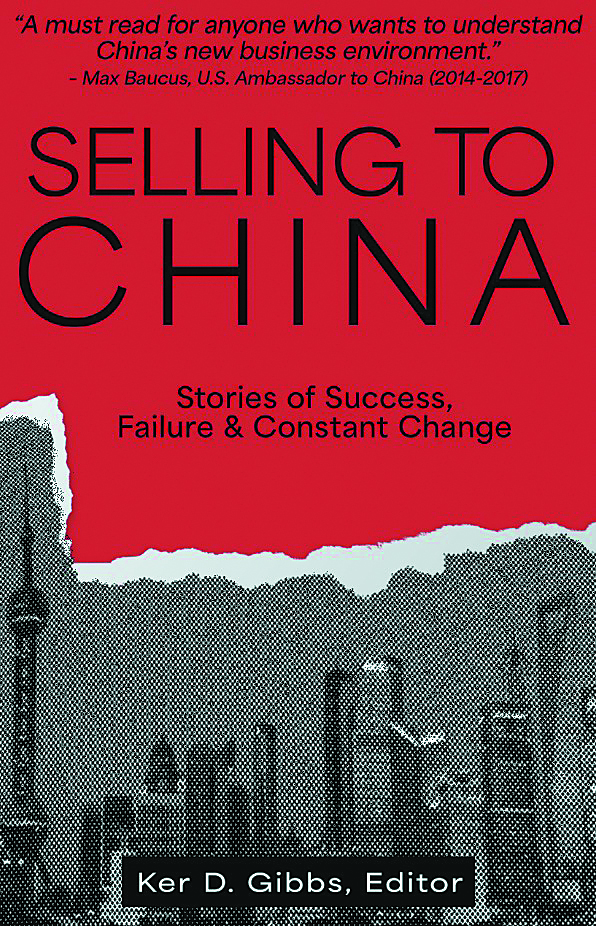
Editor's note: As the People's Republic of China celebrates the 75th anniversary of its founding this year, China Daily asked prominent international figures to reflect on their relationship with the country and to talk of the direction in which they see it going.
A veteran of US-China business relations and an advocate for engagement, Ker Gibbs offers a unique perspective on the dramatic changes China has undergone over the past two decades, such as the "golden age" of cooperation and the current complexities of navigating the Chinese market.
Gibbs' early years in China, during the late 1980s and early 1990s, coincided with the country's reform and opening-up to the world. He described this period as a "magical time" characterized by optimism and a shared vision of China's integration into the global economy.

"The atmosphere was filled with optimism and energy. Foreigners working in China saw the obvious potential if our two systems could somehow become compatible. Our Chinese counterparts were eager to learn and open to adopting new methods and management techniques," Gibbs told China Daily in a recent interview.
Gibbs, then working for the Boston Consulting Group in Shanghai and San Francisco, said they shared with their local teams in China the expertise in modern business practices, such as inventory management, quality control and worker safety.
Looking back, Gibbs called this period "a golden age for US-China relations", in contrast to the current environment.
READ MORE: Boost to market confidence, growth momentum
Acknowledging that China was "a rugged place" in those days, Gibbs said, "Living conditions were difficult and my work environment was nothing like it would have been in San Francisco or Boston, but China was fun and exciting. Every day was different, better than the last, and the optimism was infectious."
Since then, he split his time between Asia and Silicon Valley, serving in executive positions with Apple, Disney, and high-growth internet businesses. He moved to Shanghai in 2002, where his career in high tech led him to banking and then to direct investments. He had served as president of the American Chamber of Commerce in Shanghai since 2019 before returning to the United States in 2022.
READ MORE: IMF praises China for its resilient growth
He is now an executive in residence with the China Business Studies Initiative at the University of San Francisco, and a member of the National Committee on US-China Relations.
Gibbs' firsthand experience in China is captured in his recently published book Selling to China, and upcoming work on the early days when US and Chinese people were just starting to learn from each other.
"That was a golden age of cooperation, although profits were thin in those early days. The growth years would come later, after China joined the World Trade Organization," he said, referring to the book he is currently working on.
A co-author and editor of Selling to China, Gibbs said the book aims to refocus the conversation on the opportunities and successes that emerged from US-China commercial ties and promote continued business cooperation.
"The conversation about the US and China had shifted in a bad direction. The media only described the conflicts and disagreements, and people were losing sight of the incredible benefits that have been enjoyed by both sides as a result of our commercial relationship," he explained.

Shifting direction
"So, we decided to write a book about business to try and shift the conversation back in that direction as much as we could. Business has its own challenges, but as long as we're talking about solutions then we should be able to get along and continue to cooperate," he said.
The book delves into the challenges and opportunities in specific industries, where the co-authors have deep expertise, and offers insights and strategies for navigating the Chinese market.
READ MORE: China extends tariff exemptions on certain US goods until Feb 2025
Since the early 1990s, US business in China has been largely a story of success, as the book points out. While acknowledging the challenges faced by US companies operating in China, Gibbs said many of them have done well in China over the years.
"At this point, the China market is so big and so important that no company can be considered truly global unless it has a business in China. But it's also important to be in the market so that we don't miss out on innovation," he said.
READ MORE: China to impose anti-dumping duties on US propionic acid products
"In the car industry, for example, a lot of the new ideas and technologies are coming from China," said Gibbs, "If GM, Ford, and Volkswagen aren't in the China market, they will miss seeing what's coming until it hits the global market. By then it's too late. It's much smarter to be in the China market where you can get a good look at your next global competitor."
Gibbs stressed the importance of engagement between the two countries because decoupling will be "mutually self-destructive".
READ MORE: China asks WTO to set up panel on US new energy vehicle subsidies
From a pragmatic view, he highlighted that engagement has led to prosperity. "Business between the US and China has created jobs and lifted millions of people into the middle class. For years people have traveled between the US and China as tourists or students, giving each side an opportunity to learn and make new discoveries," he said.
"Nobody is happy with the current hostilities between the US and China. We have to get back to a more friendly atmosphere. Rather than continuing to put pain on each other, we would like to see more aggressive and creative diplomacy," said Gibbs.



